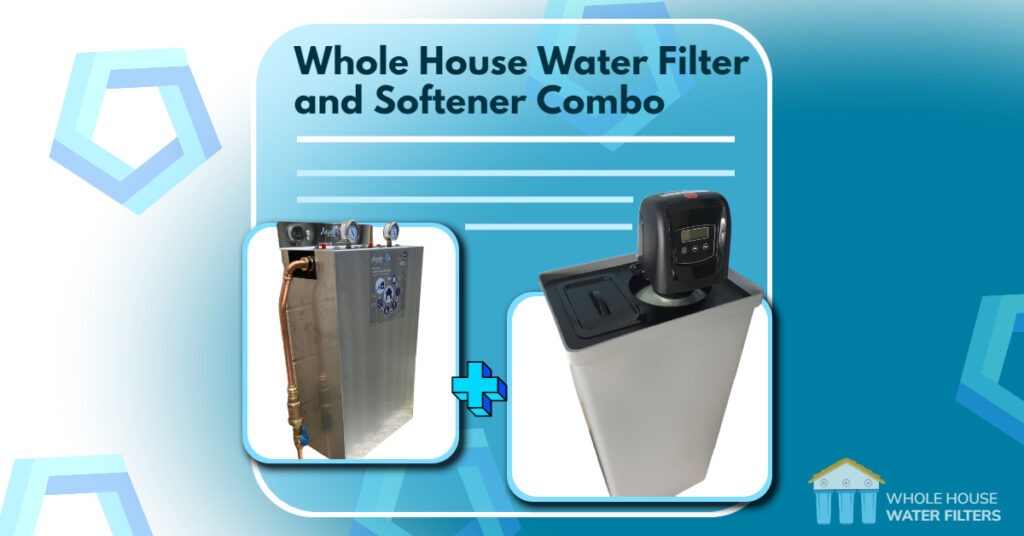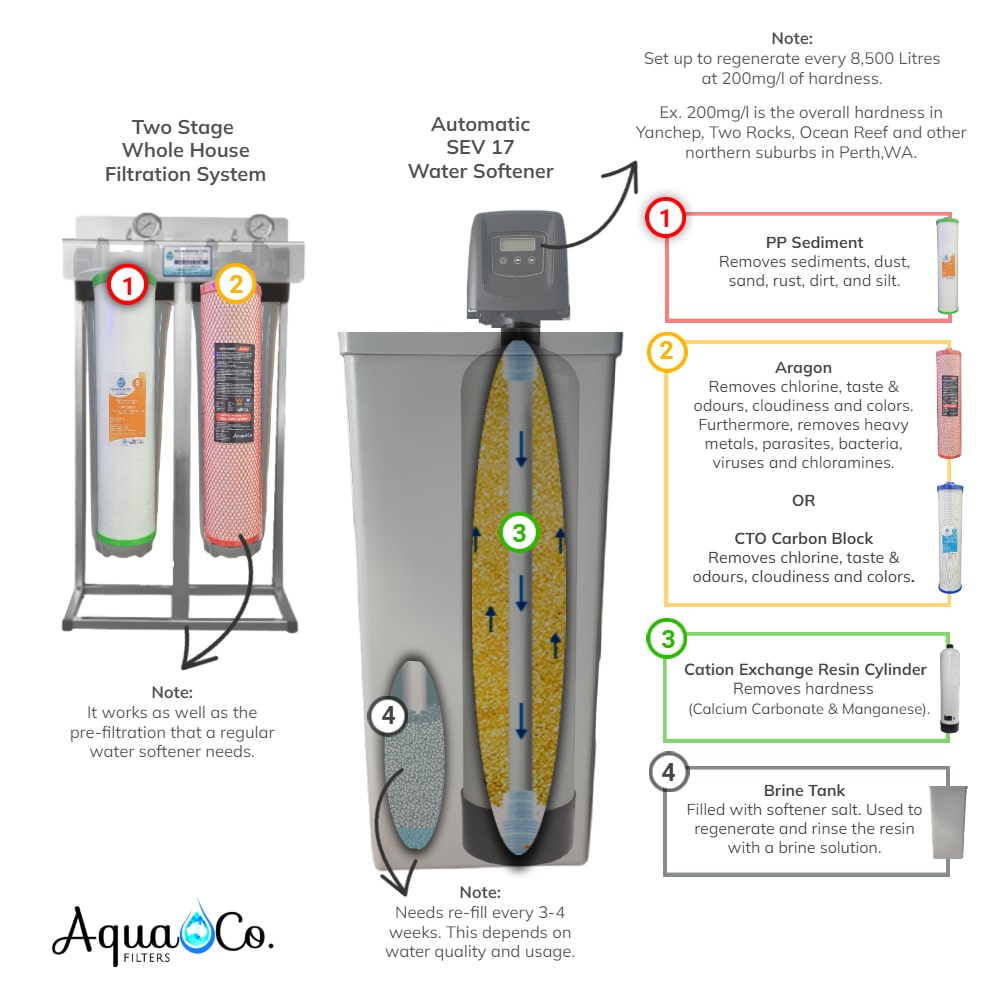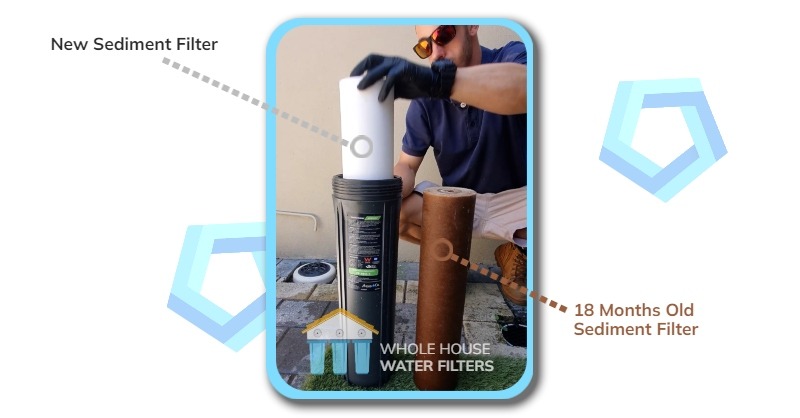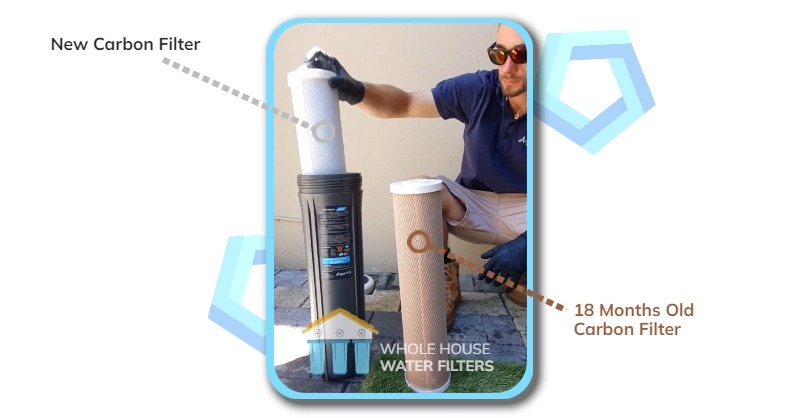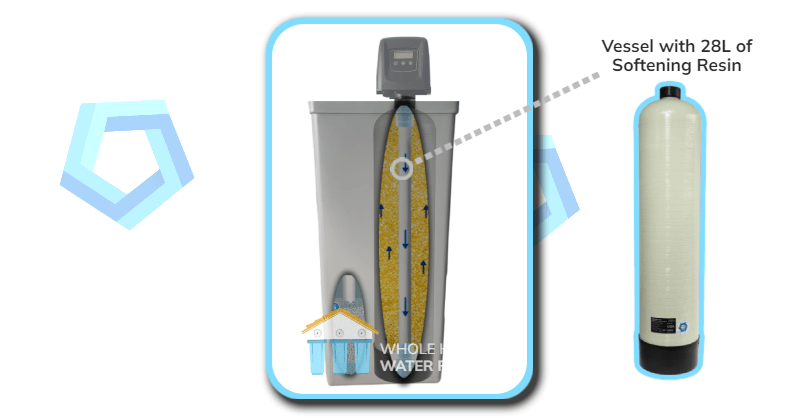Water Softeners, Whole House Water Filtration System
Whole House Water Filter and Softener Combo – Filtration Process
Whole House Water Filter and Softener Combo – Filtration Process
Stage 1 – Triple Gradient Polypropylene Sediment Filter
Stage 2 – Aragon Filter or Coconut Shell Activated Carbon Block
Stage 3 – Automatic Water Softener with 28 Litres of Softening Resin Inside
Stage 4 – Brine Tank with Softening Salt to regenerate the resin after filtering 17000 litres at a hardness level of 100mg/l. If your hardness level is 200mg/l the softener will be adjusted to self-regenerate every 8,500 litres.
Do you need both?
A Whole House Water Filter is paired with an Automatic Water Softener for several reasons.
- Removing Sediments and Larger Particles: The Whole House Water Filter acts as the pre-filter that every Water Softener should have. It is designed to capture larger particles like sand, sediment, rust, and other solids that might be present in the water source. These larger particles can clog the resin bed of a water softener and inhibit its performance. By using the Whole House Water Filter, you can remove these particles and ensure that the water softener is working at its most efficient capacity.
- Protecting the Softener System: By eliminating these larger particles, the Whole House Water Filter protects the water softener from potential damage and extends its life span. In some cases, particles may not just interfere with the softening process, they may also damage the unit.
- Improving Water Quality: The Whole House Water Filter can help improve the overall water quality by reducing turbidity (cloudiness caused by suspended particles), which can affect the taste and clarity of your water. It also helps remove some contaminants that a softener is not designed to handle.
- Ensuring Consistent Water Flow: Without the Whole House Water Filter (pre-filtration), larger particles may cause clogging and result in inconsistent water flow. Pre-filtration helps to maintain consistent water flow through the water softener.
Remember that water softeners are designed primarily to deal with hard water issues caused by minerals like calcium and magnesium. They may not be designed to handle other types of impurities or contamination. That’s why combining them with a pre-filtration system and even a post-filtration system (for things like chlorine, bacteria, viruses, and certain organic compounds) can provide a more comprehensive water treatment solution.
View this post on Instagram
Stay Informed: Check Your Local Water Quality Reports!
- Perth Water Quality
- Sydney Water Quality
- Melbourne Water Quality
- Adelaide Water Quality
- Brisbane Water Quality
Keep in mind tap water is only tested at the reservoir and doesn’t take into account all the contamination that occurs during its travel to your home.
Helpful Links:
- Water Quality Association (WQA): The WQA is a renowned organization that provides certifications for water treatment products, including water softeners. You can visit their website to learn about their certification programs and find a list of certified water softeners. Website: https://www.wqa.org/
- National Sanitation Foundation (NSF International): NSF International is another prominent organization that offers certifications for water treatment products, ensuring they meet specific standards. You can search for certified water softeners on their website. Website: https://www.nsf.org/
- American National Standards Institute (ANSI): ANSI accredits organizations that develop product standards, including those related to water treatment. You can check their website to find accredited certification programs for water softeners. Website: https://www.ansi.org/


